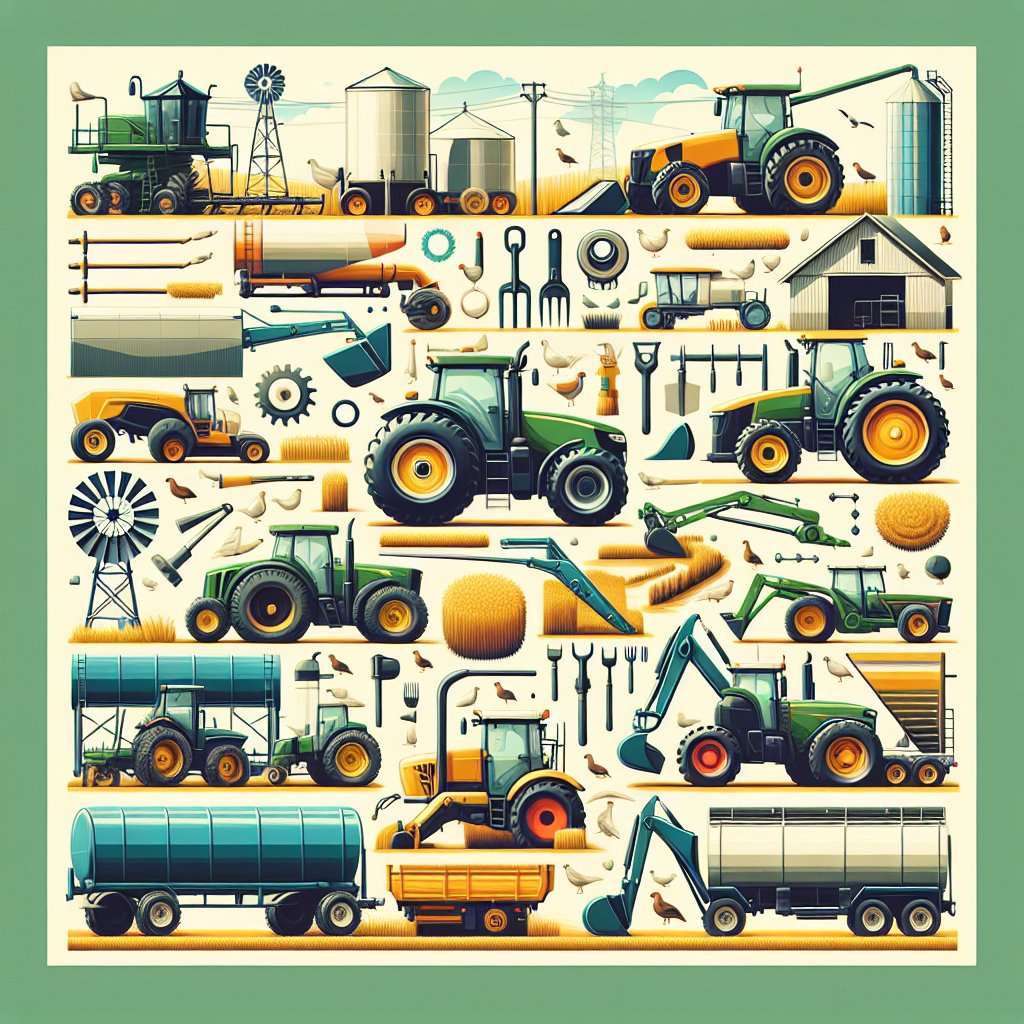
Choosing the best farm equipment for your needs is a critical decision that can significantly impact the efficiency and productivity of your agricultural operations. With a wide array of machinery available on the market, making the right choice requires careful consideration of various factors, including the type of farming you engage in, the size of your farm, and your budget. This article will guide you through the essential steps and considerations to help you make an informed decision.
Understanding Your Farming Needs
Before diving into the specifics of farm equipment, it’s crucial to have a clear understanding of your farming needs. This involves evaluating the type of crops you grow or the livestock you raise, as well as the scale of your operations. Different types of farming require different equipment, and what works for a small-scale vegetable farm may not be suitable for a large-scale grain operation.
Assessing Crop and Livestock Requirements
Start by identifying the specific requirements of your crops or livestock. For instance, if you are a crop farmer, consider the type of soil you have, the climate conditions, and the specific tasks involved in planting, maintaining, and harvesting your crops. Each of these factors can influence the type of equipment you need. For livestock farmers, consider the type of animals you raise and their specific needs, such as feeding, milking, or shearing.
Evaluating Farm Size and Terrain
The size of your farm and the terrain also play a significant role in determining the appropriate equipment. Larger farms may require more powerful machinery to cover extensive areas efficiently, while smaller farms might benefit from more compact and versatile equipment. Additionally, the terrain of your farm—whether it’s flat, hilly, or uneven—can affect the type of machinery that will be most effective.
Exploring Equipment Options
Once you have a clear understanding of your farming needs, the next step is to explore the various equipment options available. The market offers a wide range of machinery, from tractors and plows to specialized equipment like combine harvesters and balers. Each type of equipment serves a specific purpose, and understanding these purposes is key to making the right choice.
Tractors: The Backbone of Farm Equipment
Tractors are often considered the backbone of farm equipment due to their versatility and ability to perform a wide range of tasks. When choosing a tractor, consider factors such as horsepower, size, and attachments. The right tractor should be powerful enough to handle your farm’s tasks but also compatible with the implements you plan to use.
Specialized Machinery for Specific Tasks
In addition to tractors, there are numerous specialized machines designed for specific farming tasks. For example, combine harvesters are essential for grain farmers, while balers are crucial for those who need to manage hay or straw. Understanding the specific tasks you need to perform will help you identify the specialized equipment that can enhance your farm’s productivity.
Considering Technological Advancements
Modern farming equipment often incorporates advanced technology to improve efficiency and precision. Features such as GPS guidance, automated steering, and data collection can significantly enhance your farming operations. While these technologies can be a significant investment, they often pay off in terms of increased productivity and reduced labor costs.
Budgeting and Financial Considerations
Budgeting is a critical aspect of choosing the best farm equipment. High-quality machinery can be expensive, but it’s important to consider the long-term benefits and potential return on investment. Balancing cost with quality and functionality is key to making a financially sound decision.
New vs. Used Equipment
One of the first decisions you’ll need to make is whether to purchase new or used equipment. New equipment comes with the latest features and a warranty, but it can be costly. Used equipment, on the other hand, is more affordable but may require more maintenance. Carefully assess the condition and history of any used equipment to ensure it meets your needs.
Financing Options
Many farmers opt for financing options to manage the cost of purchasing equipment. Loans, leases, and equipment financing programs can provide the necessary funds while allowing you to spread the cost over time. It’s important to explore different financing options and choose one that aligns with your financial situation and long-term goals.
Maintenance and Support
Once you’ve selected your equipment, ongoing maintenance and support are crucial to ensure its longevity and performance. Regular maintenance can prevent costly breakdowns and extend the life of your machinery.
Establishing a Maintenance Schedule
Develop a maintenance schedule that includes regular inspections, oil changes, and part replacements. Keeping a detailed record of maintenance activities can help you stay on top of necessary tasks and identify potential issues before they become major problems.
Access to Support and Spare Parts
Having access to reliable support and spare parts is essential for minimizing downtime. Choose equipment from reputable manufacturers with a strong support network. This ensures that you can quickly obtain the parts and assistance you need to keep your equipment running smoothly.
In conclusion, choosing the best farm equipment for your needs involves a thorough understanding of your farming operations, careful exploration of available options, and strategic financial planning. By considering these factors and maintaining your equipment properly, you can enhance the efficiency and productivity of your farm, ultimately leading to greater success in your agricultural endeavors.

